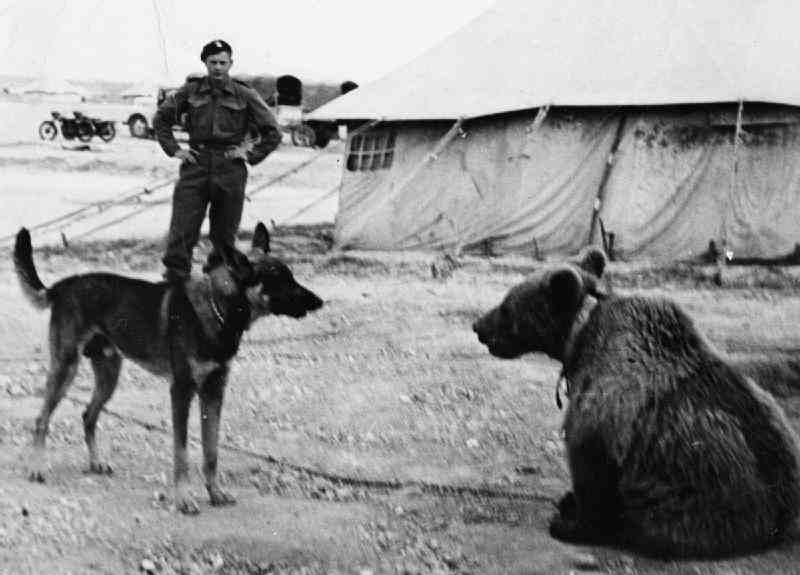
Wojtek the bear: photo - wikipedia
“Polish history is very often tragic, it's heavy on the emotions – people talk about it sometimes in sacred tones,” he told Polish Radio's English Section on Thursday at a press conference at Krakow's town hall.
“And this is a heart-warming, natural, human way into that whole subject.”
Wojtek was a Syrian bear who was adopted by the Polish Second Corps, a formation chiefly made up of men released from Soviet labour camps after Stalin was compelled to sign an amnesty in 1941.
“Wojtek is not just a nice story about a bear who became a soldier. He's a symbol of a big group of people - 100,000 strong and more - who came out of Stalin's Russia,” Davies reflected.
The historian, who was one of very few foreigners to study at Krakow's Jagiellonian University during the communist era, said that the wartime odyssey deserves to be better known.
“This is a natural, friendly way into a gripping historical subject,” he enthused.
As part of the British 8th Army, the Polish Second Corps advanced from Egypt to Italy, where Wojtek was present at the Battle of Monte Cassino, a clash which opened the road to Rome.
He became the mascot of the 22nd Transport Company, with the official rank of private, not to mention a double daily ration of food.
Professor Wojciech Narebski, the last living veteran in Poland of the company, was also present at yesterday's conference.
The 88-year-old recalled how the much-loved bear helped soldiers to load ammunition onto army trucks, and kept the men's spirits up with his antics (which included gobbling up cigarettes and play-fighting with the troops).
“In my opinion, the presence of an animal in any society, in the family or other groups, always has a very good influence on morale,” he said.
“He was a very friendly animal.”
The vast majority of the Polish Second Corps, which was led by General Wladyslaw Anders, did not return to Poland after the war, as a Soviet-backed communist regime was installed in the country.
Anders, who remained in the UK, was demonised by the communist authorities, and it is only recently that the story of Wojtek the bear has been popularised in Poland.
Boguslaw Kosmider, chairman of the Krakow city council, reflected that the statue “will bring both adults and children closer to a rather little known wartime story, and to the Polish soldiers of Anders' Army."
Meanwhile, Richard Lucas, a Krakow-based British entrepreneur and one of the key figures in the initiative, says that an international competition will be held for the statue design. A plot has been ear-marked in the city's 19th century Jordan Park. Among the statues already located in the park is a recently installed bust of Wojtek's old commander, General Anders. (nh)